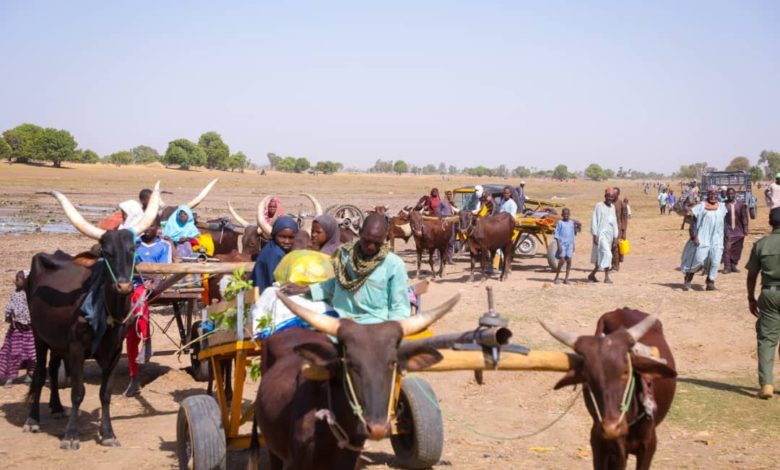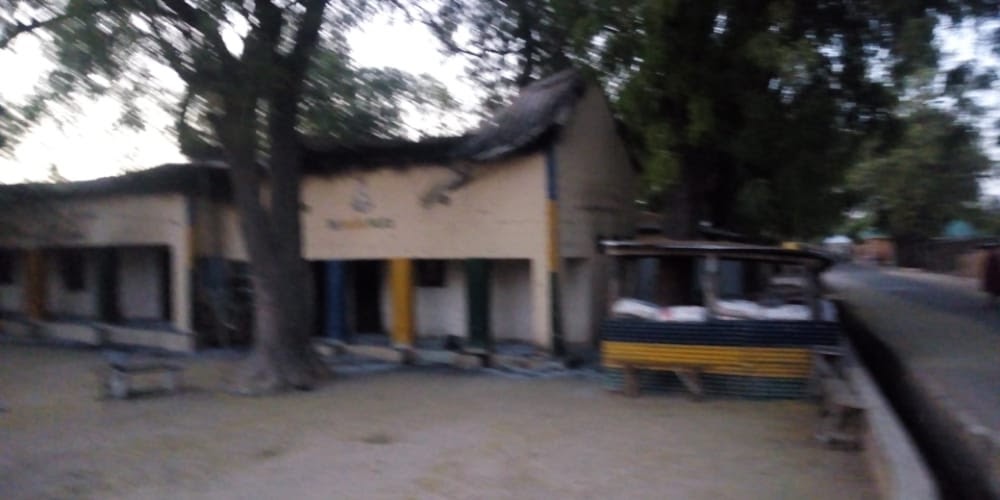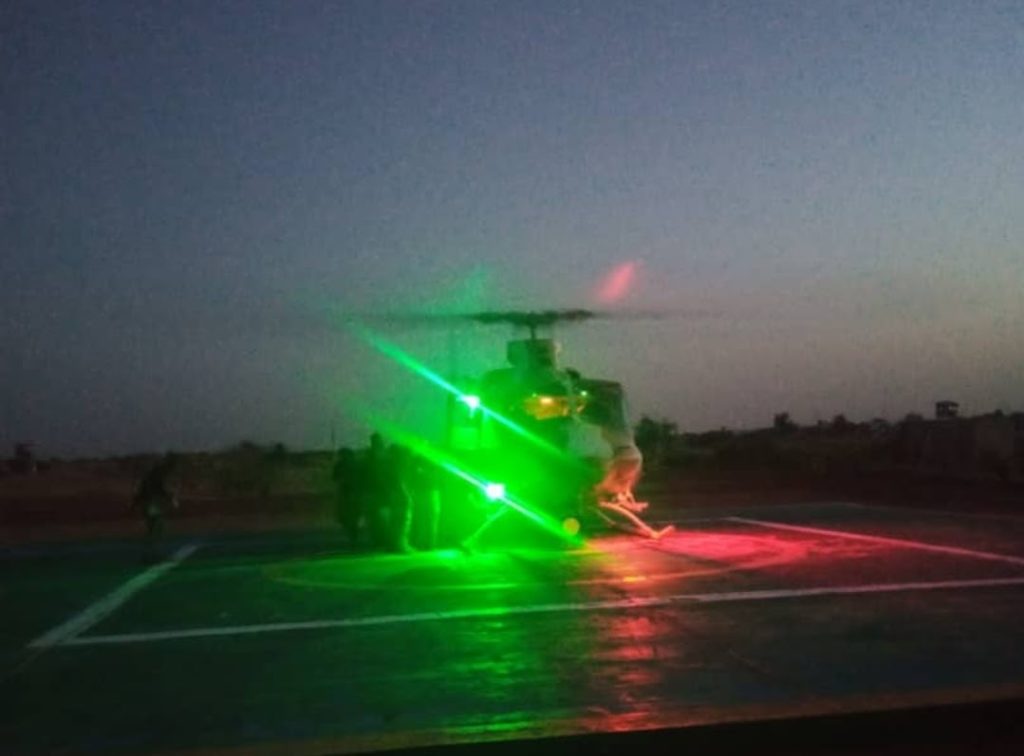Damasak: The Nigerian Town Caught In ISWAP’s Crosshairs
The Nigerian military deployed reinforcements after the terror group went on rampage in Damasak that dislodged thousands of locals.

A series of attacks launched by ISWAP, the Islamic State affiliate in West Africa, in Damasak, a town close to the shores of Lake Chad, has led to the dislodgement of some residents and disruption of badly needed humanitarian assistance.
Damasak, the main town of Mobbar Local Government Area, is located near the border with the Niger Republic.
It is protected by the Army Super Camp 14 situated in the new base about two to three kilometres from the town, along the Abadam-Guzamala road. The super camp is located within the sector three (3) area of responsibility and has trenches, artillery guns, and a helipad.
HumAngle understands that the new base was chosen due to shelter and military benefits not available in the former base along the Gubio-Maiduguri road.
The bordering Kamadougou-Yobe river, alongside the fertile nature of the land in the Damasak area, influences the fishing, trading, and farming livelihoods of the local population. The town is also an important smuggling route community along the Niger border area.
Spike in ISWAP attacks
ISWAP insurgents have conducted multiple incursions in Damasak between March and April 2021, with the most recent fierce attacks taking place on Saturday, April 10, and Tuesday, April 13.
Insurgents in multiple gun trucks had targeted the super camp and had also gone on a rampage targeting some civilians. Government, police, and humanitarian facilities belonging to organisations such as the United Nations, INTERSOS and Norwegian Refugee Council, were not spared.
On Tuesday, the first day of the Islamic holy month of Ramadan, ISWAP insurgents in over a dozen trucks entered the Damasak area and subsequently split into two groups, one aiming at the super camp housing troops, while the second went into Damasak town. The attackers killed several people, looted and destroyed properties, before withdrawing.

The Air Force which played a crucial role in supporting attempts to thwart these attacks also conducted a medical evacuation of injured persons, following the April 13 attack.
HumAngle has learned that, on Wednesday afternoon, there was another security incident involving ISWAP in Damasak.

Impact of the attacks
In response to the attacks and perceived lack of security, many residents have left Damasak for other communities in the region. According to the United Nations refugee agency, as many as 65,000 people fled to the Borno state capital, Maiduguri, and Geidam in neighbouring Yobe State, while others crossed into Niger’s Diffa region.
HumAngle learned that the visit of Borno state governor Babagana Zulum on Thursday has led to some residents crossing the border back to Damasak. The governor, who spent the night in the town to build public confidence, provided 12 security vehicles to support the security forces and volunteers.
Although humanitarian operations have already been suspended and aid workers relocated out of the town, aid operations were originally supporting about 8,800 Internally Displaced People and 76,000 members of the host community, who mostly relied on humanitarian assistance.
HumAngle has been informed that the Nigerian military has sent a reinforcement of troops and military equipment to its Damasak base.
The motive behind ISWAP’s attacks?
Although the motive behind ISWAP’s violence campaign in Damasak is not known yet, HumAngle understands that the border town has a strategic military, geographic, and economic importance.
Additionally, the targeting of humanitarian operations is part of the group’s way of instilling terror in aid organisations, which they accuse of spying and spreading blasphemous beliefs.
These attacks on humanitarian activities range from abductions at ISWAP roadblocks, to the storming of garrison towns, and targeting of aid facilities and workers.
There are concerns about the security of garrison towns such as Monguno and Baga, and the state government’s resettlement scheme designed to return people to their homes.
More than 37,000 people have been killed, and millions have been displaced by the Boko Haram conflict, according to the Council on Foreign Relations’ security tracker.
Support Our Journalism
There are millions of ordinary people affected by conflict in Africa whose stories are missing in the mainstream media. HumAngle is determined to tell those challenging and under-reported stories, hoping that the people impacted by these conflicts will find the safety and security they deserve.
To ensure that we continue to provide public service coverage, we have a small favour to ask you. We want you to be part of our journalistic endeavour by contributing a token to us.
Your donation will further promote a robust, free, and independent media.
Donate HereStay Closer To The Stories That Matter




